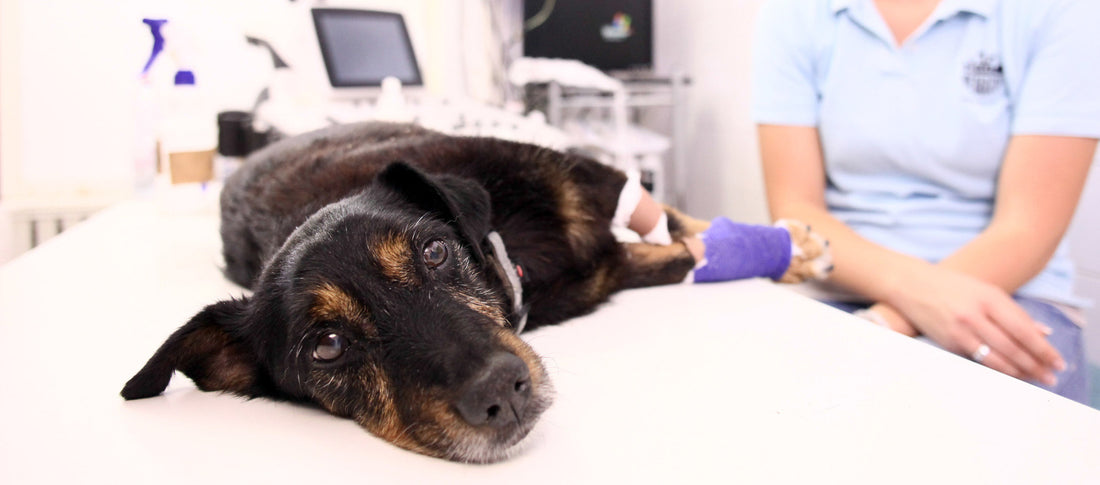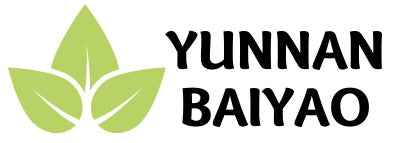
How a Poor Diet Can Cause Gastric Cancer in Dogs
Share

No matter how busy you are, or on a very tight budget, one very important thing is you want to make sure that your dog is eating as healthily as it should.
You may think that what you feed your dog doesn't matter, dogs will eat anything and look happy and they'll probably eat anything you put in front of them!
Still, did you know that certain additives in dog food can cause gastric cancer in dogs?
It's always difficult to hear that the most accessible food for your pet is probably the worst possible thing to feed them. But just like humans can't get all their nutrients out of cheap junk food (and are probably poisoning themselves), dogs can't get the nutrition they need from commercial food. Your dog knows absolutely nothing about nutrition so it is up to you - the owner to assume responsibility and make sure that their food intake is wholesome and nutritional.
Not only that but the commercial dog food you're feeding them could possibly kill them later on.
What causes gastric cancer in dogs?
Feeding your dog a balanced, healthy diet is crucial for keeping their health in tip top shape. Unfortunately, many dog foods on the market use substandard ingredients that can harm our pets. The pet food industry is a profitable but cut throat industry, where many vendors use below par ingredients as fillers.
This often includes the inexpensive brands you see on store shelves.
When it comes to the causes of gastric cancer in dogs, the key culprits in your dog's diet are probably nitrosamines. Nitrates can also play a role in causing this cancer.
Human beings have died from nitrate poisoning. Dogs actually ingest more nitrates and nitrosamines than humans, as their food is loaded with them.
A number of nitrosamines dogs ingest is far above the amount permitted for humans.
What are nitrosamines and nitrates? The easiest ones to catch are the ones in artificial colors. Anything that sounds like a food dye, like RED #40 or YELLOW #6 has the chance of being a nitrate.
Nitrosamines are easier to find. Ever heard of sodium nitrate? It may make an appearance in your dog's food as a preservative or as red food coloring.
Nitrosamines have carcinogenic effects on dogs, and the amount of nitrosamines and nitrates that dogs ingest can lead to gastric cancer in dogs.
Symptoms
Gastric cancer in dogs can be very sneaky. When symptoms start, you may have no idea that your dog has a chance of having gastric cancer. Symptoms that are hard to detect are always the most difficult to deal with.
On the surface, they may not look like much. However, if your dog has more than one of these symptoms tied together, you may need to investigate further.
Key symptoms of gastric cancer in dogs:
- Diarrhea
- Dark stool. As with various other illnesses, you can probably detect that something's wrong with your pooch by the color and texture of their stool. Gastric cancer will give your pet a dark stool that's almost like tar. Monitor your dog's stool for a few days and see if there are any changes.
- Anemia. This one can be difficult to spot. If your dog is lethargic and just generally out of it, it could be a sign of anemia. A key way to see if your dog has anemia is to check their gums. If they're pale, their red blood cell count could be down, which in turn could lead to anemia.
- Lack of appetite. This, in particular, is a symptom if your dog has been losing weight.
- Abdominal pain.
- Vomiting blood.
- Loss of energy. If your dog isn't happy to be playing with you as much as they used to be, this could be a sign of gastric cancer. Gastric cancer in dogs causes an unusual lethargy.
Remember, these symptoms can always point to something else. There's a lot of overlap when it comes to illnesses with your dogs.
However, if your dog has been eating commercial dog food for a considerable amount of time and you notice these symptoms, consider taking them for a check up at the vet. Your veterinarian will be able to diagnose your furry friend and get you the diagnosis and treatment you both need.
Remember that the earlier you catch diseases such as gastric cancer, the higher chance you have of bringing your dog back to their old self.
Types of gastric cancer
- Lymphoma. This is the most common type of gastric cancer in dogs. Lymphoma accounts for 7 to 24% of all gastrointestinal cancers in dogs. However, lymphoma gastric cancer and regular lymphoma cancer are two separate diseases with different prognosis rates. Lymphoma is more common in male dogs than female, and some breeds are automatically predisposed to it.
- Adenocarcinoma. This refers to different types of tumors that are associated with stomach cancer in dogs. This particular type of cancer can be found in the glandular tissue. Adenocarcinoma accounts for about 70% of all malignant tumors. It starts in the stomach wall and then overtakes the gastric lymph nodes, stomach fat, liver, lungs, pancreas, and so forth.
- Leiomyosarcoma. This type of cancer grows on the walls of your dog's organs. This type of gastric cancer in dogs can be found on the walls of the stomach and respiratory tract. It can also easily spread to the liver, spleen, kidneys, and other vital organs of your dog's.
- Mast cell tumors. Mast cells can be found in your dog's digestive tract lining, as well as the linings of their lungs, skin, and nose. These cells are the first to act when allergies and other inflammations pop up. If these cells have tumors, that means they've become abnormal. That means that they won't release the right chemicals and may go into overdrive. This, in turn, damages your dog's body.
Conclusion
Remember: your furry friend is a member of your family, and it deserves to be treated as such. You (hopefully!) wouldn't pump your body full of nitrates and carcinogens, and your dog deserves the same respect.
Bad food affects your dog's body in ways beyond taste. Even if it's the food they were raised on, if you don't check the ingredients or you suspect the food of containing bad preservatives and chemicals, it's never too late to switch your dog's food.
Research the best brands or raw foods to feed your dog to ensure that they have the richest life that they can. Remember: you always have the option to keep your pet happy and healthy!
Prevention is better than cure, but if your dog, unfortunately, gets gastric cancer, buy holistic products that can help you manage the condition.
